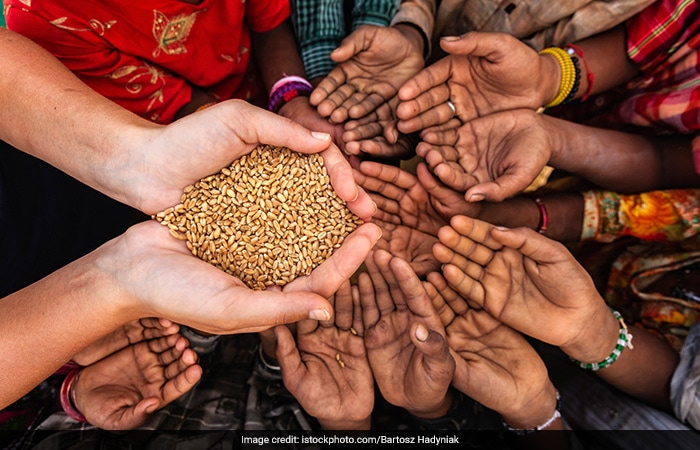National Nutrition Week 2020: All You Need To Know
According to Food and Agriculture Organization of United Nations's report titled, ‘The State of Food Security and Nutrition in the World, 2020 states that 189.2 million people are undernourished in India, which means 14 per cent of the population is undernourished in the country. The report also highlights that 34.7% of the children aged under five in India are stunted (too short for their age), while 20% suffer from wasting, meaning their weight is too low for their height. These figures highlight India's poor nutrition track-record and to change these grim statistics and create awareness among people about the importance of nutrition and a balanced diet, the central government celebrates National Nutrition Week. Here are the five things to know about the week:
-
About National Nutrition Week And Its Objective: It is an annual nutrition event organised by Food and Nutrition Board within Ministry of Women and Child Development, Government of India. The week highlights the importance and role of the right nutrition for the human body and why it is important to have a balanced diet with a combination of essential nutrients. There are many people today in India which are Malnourished and require a proper diet to improve their body growth.
-
Theme of National Nutrition Week: The week is celebrated every year with a particular theme for the people to understand the various aspect of the nutritional requirement and importance. In 2017 the theme was 'Optimal Infant & Young Child Feeding Practices: Better Child Health', in 2018, it was 'Go Further With Food' and in 2019 the theme was 'Har Ghar Poshan Vyavahar (Healthy Behaviour In Every Home). The theme of 2020 will be addressing the nutritional needs and healthy eating practices.
-
How It Is Celebrated: In the 43 Community Food and Nutrition Extension Units (CFNEUs) set up by Food and Nutrition Board in four regions of the country, National Nutrition Week is marked with a particular theme wherein workshops, orientation training of field functionaries, awareness generation camps and community meetings are planned during the week. CFNEUs organise workshops, lectures, film and slide shows, exhibitions in collaboration with the concerned Departments of the State Governments, Educational institutions and Voluntary organisations. During educational programmes, CFNEUs focuses on various aspects of health and nutrition, including the importance of immunisation, breastfeeding, principles of hygiene and sanitation, conservation of nutrients during food preparation.
-
India's Nutritional Statistics: For the development of any nation, it is imperative for a nation to improve the nutritional status of its citizens. The Poshan Abhiyaan 2018-22 has set goals to reduce child under-nutrition (stunting and underweight) and low birth weight by 2 per cent a year, and anaemia across age groups by 3 per cent, and create a mass movement for good nutrition in the country. But when we compare the nutritional status of India in National Family Health Survey 4 (2015-2016) to the previous edition of the survey, NFHS 3, the percentage of children (6-59 months) who are anaemic has come down from 69.4 per cent to 58.6 per cent. The level of children under 5 years who are severely wasted (low weight for height) has increased from 6.4 per cent to 7.5 per cent, and child stunting (low height for age) has decreased from 48 per cent to 38.4 per cent. Moreover, as per Global Hunger Index (GHI) 2019, India has been ranked 102 out of the qualifying 117 countries that were assessed. The Global Hunger Index comprehensively tracks and measures hunger across the world and India's rating in the 2019 year has been poor with a score of 30.3 which according to their guidelines, falls in 'serious' category*. Apart from this, India's neighbouring countries Pakistan, Nepal and Bangladesh have secured a better rank than India. While Nepal is ranked 73, Bangladesh and Pakistan are ranked 88 and 94 respectively.






